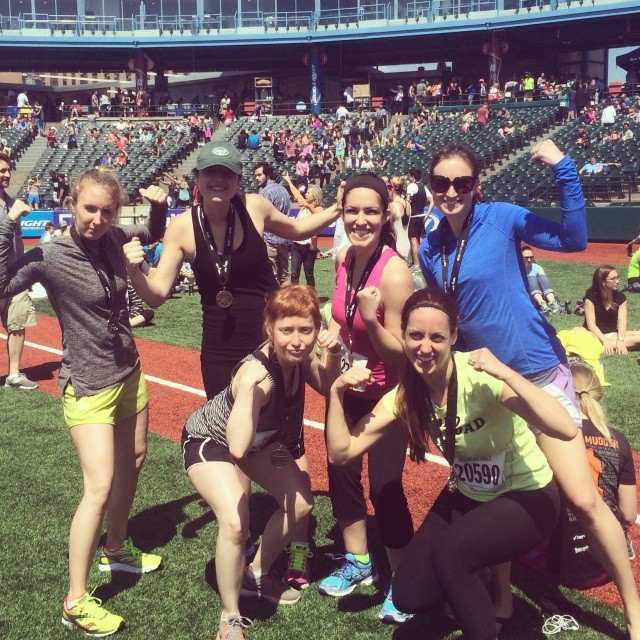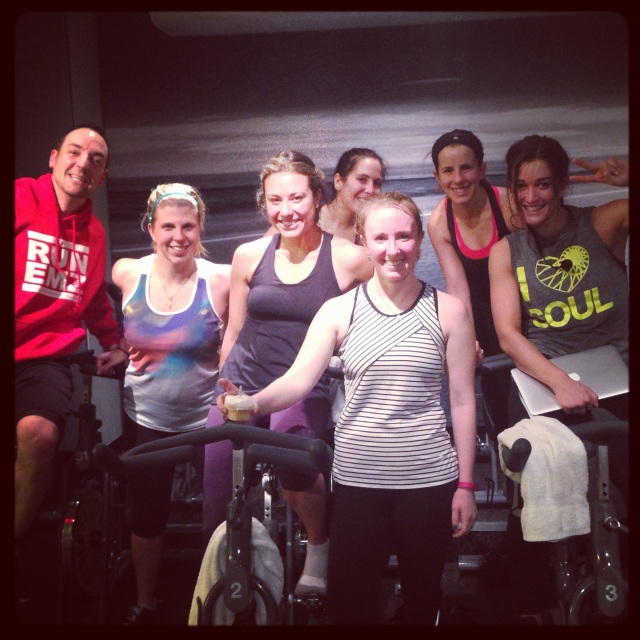And other ways your body is actually amazing.
First, let me qualify this post with a few caveats:
Caveat #1:
I am not a registered dietician, health coach, nutrition mad-scientist, guru, Jedi master, or the Dalai Lama. I have not received any specific training in nutrition. I am also not Dr. Oz.
Addendum to Caveat #1:
What I can say about myself is the following: I have a B.A in Chemistry and a MD, both from NYU, which hopefully did something productive with all of that tuition money I paid them. Given these two degrees, I would consider myself to have at least a basic fund of knowledge and critical thinking skills to evaluate and interpret scientific literature on health “fads” and trends.
Caveat #2:
I am allopathically (“Western”) physician. However, what I will say about myself is that I’m very open-minded when it comes to complementary and alternative medicine as well as nutrition and fitness, the latter of which greatly impacts my everyday working life (diabetes, anyone? Can SoulCycle be a prescription?).
I’ve tried acupuncture (LOVE, I’d still go if I had time), cupping (interesting), Graston (ow), and Active Release Therapy (super ow). I swear my chiropractor and acupuncturist kept me from getting injured while doing two marathons in one year. That being said, if I have cramps, I’m going straight for ibuprofen and not an herb.
Caveat #3:
Despite degrees mentioned in #1, I can just as easily be fooled by great marketing, which is what inspired me to write this post. I’ve bought alkaline water (I mean, I drink a lot of coffee so I should balance that, right?), thought I was intolerant to gluten (turns out, no one can actually digest gluten), and used to drink more green juices than my bank account could handle. Turns out, doctors, too, can be suckers for good marketing.
Caveat #4:
This post is not an extensive review on every single piece of literature of what I’m going to talk about. It is, however, a review of facts and some literature. I don’t have the time to do an entire thesis on alkaline water or activated charcoal, but, hopefully, a few paragraphs with be sufficient.
So, let’s get to it…
THE TOPIC: ALKALINE WATER
THE CLAIM: BALANCING THE BODY’S PH, “DETOXIFICATION,” COMBATING ACIDOSIS, ENHANCED IMMUNITY
THE REAL SCOOP: YOUR BODY ALREADY DOES THIS FOR YOU!
THE SHORT STORY: That is to say that every day your kidneys, liver, digestive system, and lungs are exquisitely controlling your blood’s pH (to a very narrow range) and ridding your body of the toxins you put into it. You are, in fact, “cleansing” every day.
The claims make sense, right? We terrible Americans are drinking all this acidic coffee so why not just wash it down with a little alkaline water for, not only, neutralizing your body’s pH, but also ridding your body of toxins leading to better skin, fewer headaches, easier respiration (what?), a better functioning heart, and more stable and regular bowel movements (which, if you’ve worked in health care, you know everyone loves this).
QUICK LET’S ALL BUY AN IONIZER!!!
Not so fast…
First, let’s answer “what is alkaline water?”
Alkaline water is water whose pH is more basic than that of “regular” water and human blood. The pH of the delicious water I’m drinking right now is 7.0. The pH of my blood is controlled by my body to be between 7.35 and 7.45.
How does my body do this? It appears that when God made Adam and Eve, he put in our own natural Brita filters and pH regulating systems so we would all survive until we were able to create, market, and sell alkaline water (which I admit, I have bought).
Your body tightly regulates your blood’s pH through both the digestive system, your kidneys, and your lungs.
First, let’s give a big shout out to the pancreas.
You see, when you eat, your food travels to your stomach, where the pH is a brutal 2 due to hydrochloric acid secreted from these little guys called parietal cells in your stomach. The function of this is two fold: the acidic pH both starts digestion and is anti-microbial. This is why the “5 second rule” when you drop food on the floor totally works (just kidding).
Once your food has been adequately churned, its released to the good ol’ duodenum where the pancreas then squirts a bunch of juice into. This magic pancreatic secret sauce has a bunch of bicarbonate in it to neutralize the aforementioned acid. Your gall bladder also helps out in the cause, too, so the sum effect is that you are neutralizing what you’re about to absorb to a more physiologic pH.
But, what if some acid does get into your blood. WHAT NOW?
Take your hands and put them behind your back right under neath the edge of your ribs. Now, give that little spot a love tap. That’s your kidneys. Thank them.
If you have functioning kidneys, which I hope you do, then your kidneys take care of any imbalances in pH for you. I’ll leave it at that because otherwise we’d have to go into a long discussion about the nephron and loop of Henle. Unless you’re a medical student, spare yourself and just know that it works.
Your lungs help out, too. For instance, if your blood is too acidic, you’ll breathe off more carbon dioxide to, in essence, breathe out excess acid. Again, I’m leaving it at that as a discussion of this entire process is too lengthy (and, likely for you, boring).
On a brief review of medical literature, there does not appear to be any purported health benefit of drinking alkaline water. I did read one study where alkaline water may be an adjunct to treatment of reflux as alkaline water may inactive tissue bound pepsin (an enzyme) that plays a key role in the pathogenesis of reflux disease.
However, if you want better skin, a better heart, clearer thinking, easier respiration (what?), or any of the other aforementioned benefits, then you should be drinking water – alkaline or not. For your body to do all of the amazing things it can do, it needs water. Your body is approximately 70% water, after all, unless you just ate a entire bag of tortilla chips (then maybe slightly more).
THE TOPIC: “V-STEAMING”
THE CLAIM: HORMONE BALANCE, “PROTECTING” THE UTERUS, FERTILITY, DIGESTION, INFECTION, AND EVERYTHING IN BETWEEN
THE SCOOP: I’M NOT SURE WHERE TO START WITH THIS ONE
Let me just say that I think if you are putting anything in your vagina it should be a) because you are on your period, b) because you’re at the gynecologist, or c) you’re with your significant other.
There has been nothing that has gotten be more fired up lately than “V-steaming.” (Pun intended).
It came to my attention that on Goop there was a post recently about, what else, but detoxing, but this time including a “V-steam.”

Apparently, you can sit on some tiny throne that then steam cleanses your V as well as your uterus using a concoction of herbs, including Mugwort, which legitimately sounds like it is from Harry Potter.
I looked into Mugwort, out of curiosity. Mugwort is used in some Traditional Chinese Medicine therapies, like moxibustion with mugwort to turn breech babies to head down position or to bring about uterine contractions. It brings “heat,” and I know a lot of TCM focuses on heat/cold and blood flow or stagnation. Mugwort was also used to ward off ghosts by Native Americans so I’m definitely giving it out at Halloween next year (get some education with your candy!)
A few things on the V-steam…
First, let’s suffice it to say that the vagina has a lot of bacteria, more than you’d want to know. However, thanks be to God, when He made Eve from Adam’s rib (right?), he made this “system” to be a self cleaning oven, if you will. You do not need Stanley Steamer a few times a year for down there. It does the job itself and, if not, you’ll know and, hopefully, be going to see a gynecologist.
Second, your female “system” is built to protect things from ascending into the uterus (see cervix, mucus, etc). Otherwise, we gynecologists call this an ascending infection and, in fact, this is how people infected with certain bacteria get pelvic inflammatory disease (see Chlamydia). Therefore, I would hope the Mugwort isn’t making it into your uterus, as cool (or hot?) as it may sound.
Third, this sounds like a set up for burning your V and disrupting the normal vaginal flora. That sounds horrifying, painful, and like the world’s most interesting ER consult I’m sure I’ll get one day.
Fourth, maybe the steam helps stimulate circulation, or something, but this seems like an awfully expensive and potentially weird way to do so.
Fifth, if your hormones are “off balance,” please see an endocrinologist and not the V-steam.
Sixth, I don’t know what a uterine ulcer even is….(see ad above)…and I’m an OB/GYN resident…so take the ad with that in mind.
So, instead of the V-steam, go get a pap smear.
——-
If you have any data that refutes the above, please do let me know. Science is always a debate and I know I don’t have all the answers, knowledge, or time in the world to scour all of the information that is available to us today.
And, I also get that sometimes people just like certain things, even if they don’t work according to the medical literature. I’m currently drinking Aloe Water from Juice Press because I think it calms my stomach. It probably doesn’t, but the placebo effect on me is mighty strong with this one, so I’ll keep throwing down $2.50 for it…
Anything else the 5 of your who read this want to hear about?
Until next time…












